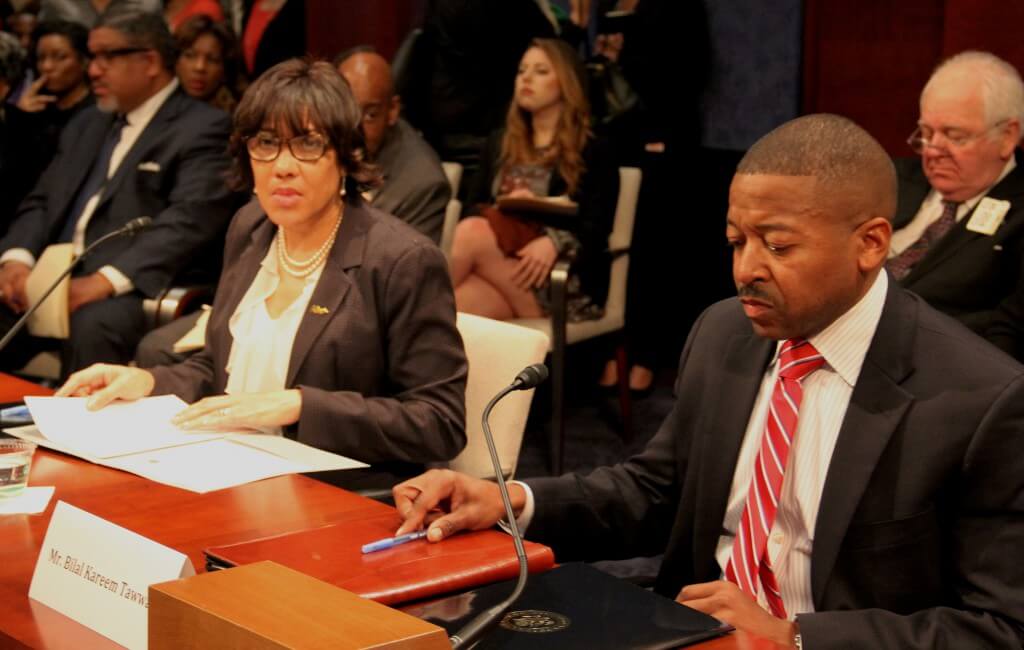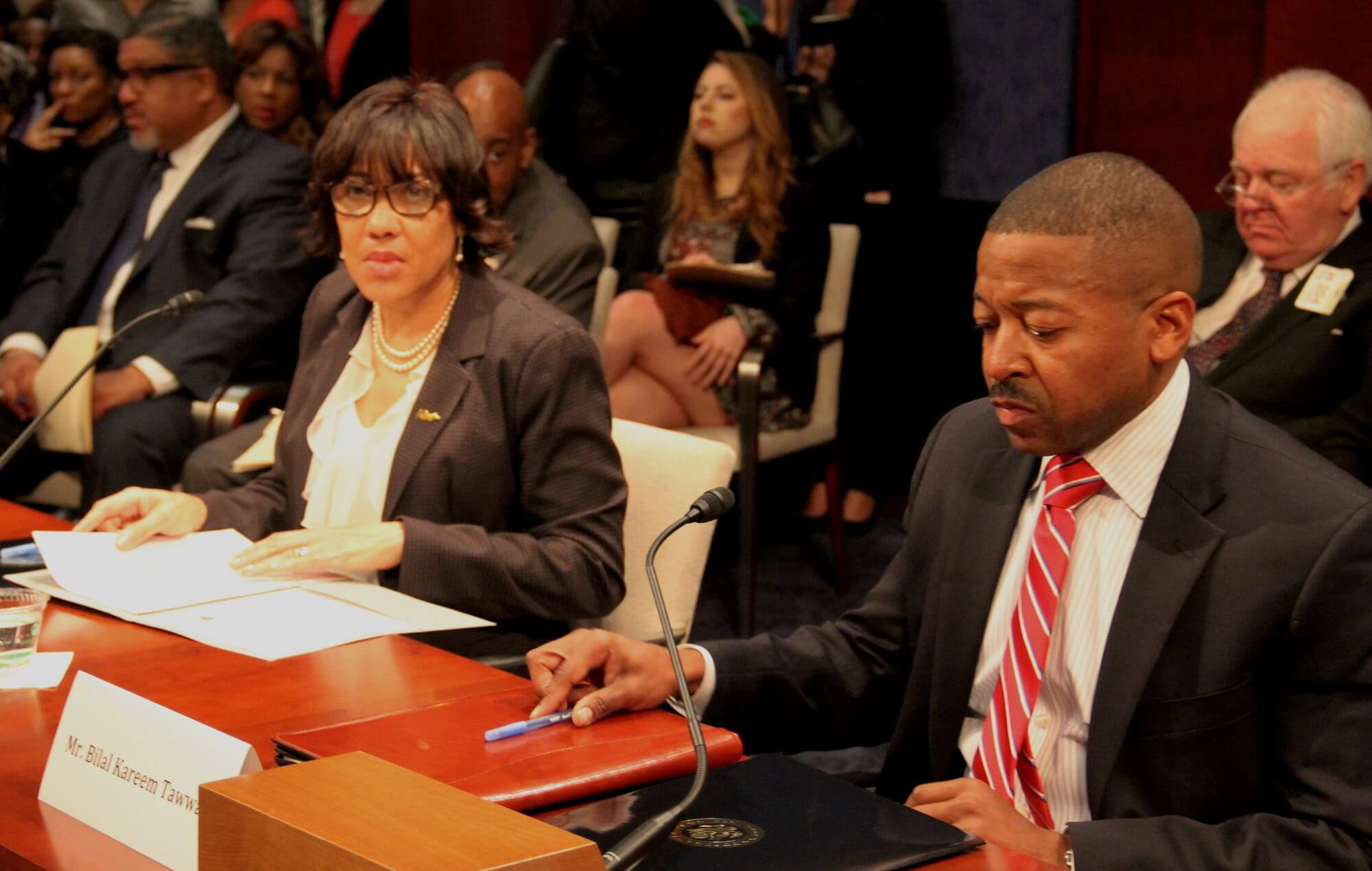
WASHINGTON — Michigan will provide $25 million of the $55 million price tag for a plan to remove lead pipes delivering water to houses in Flint, but the city is seeking more financial help from the federal government.
Lead began to leach into Flint’s drinking water after the city changed its water source in April 2014 from Lake Huron to the polluted Flint River. Flint Mayor Karen Weaver has a $55 million “fast start” plan to remove thousands of service lines in the city.
“I believe this is a solution and that it can expedite an end to this manmade disaster,” Weaver said at a hearing Wednesday of the House Democratic Steering and Policy Committee. “I implore you on behalf of the citizens of Flint to help use restore our city and rebuild trust and confidence in our government.”
The mayor said she hopes the city will receive the state funding for the fast-start program immediately so construction can start in one month.
Michigan Gov. Rick Snyder declined an invitation to testify at the hearing, drawing criticism from Rep. Dan Kildee, whose district includes Flint. He called the governor’s refusal “deeply disappointing,” while Rep. Elijah Cummings, D-Md., said the is going to have to appear before the committee at some point.
Snyder released his proposed state budget Wednesday, which also devotes about $195 million to Flint in 2017.
During the hearing, House members left to vote on a bill that would require immediate public notice by the Environmental Protection Agency whenever the agency detects elevated lead levels in a city. The bill, authored by Kildee, passed overwhelmingly with only two votes against it.
“It wouldn’t have prevented the state from the bad choices it made but we would’ve caught it sooner,” the congressman said.
Several House members called the Flint crisis a “man-made disaster,” highlighting the state government’s failure to take measures to prevent the city’s water pipes from corroding and notify the public of elevated lead levels.
Apart from replacing aging infrastructure, Flint officials are asking for funds to help alleviate the health impacts of water contamination on the children. Lead poisoning is linked to decreased IQ, attention deficiencies and violent behavior, said Dr. Mona Hanna-Attisha, the pediatrician who alerted officials to a spike in children’s blood lead levels in Flint.
Although much of the damage from lead and bacteria in the water is already done, Hanna-Attisha emphasized the need for a revitalized public health program that can provide Flint residents with ways to alleviate the developmental impacts. The pediatrician also pushed for expanded educational resources such as more experienced special education teachers, a plea that was echoed by the city’s school district superintendent.
The constant stress of dealing with unsafe water has caused a struggle between the students’ educational needs and physical concerns, Flint School District Superintendent Bilal Kareem Tawwab said.
“These circumstances make providing a sound and joyful education even more difficult when students cannot use the drinking foundation or wash an apple off to eat,” he told the committee.
Calling donations of bottled water to the city’s residents a “Band-Aid fix,” Weaver — who was born and raised in Flint — said there needs to be a permanent fix to the water system.
“We are not a disposable people,” the Flint mayor said, “We need you on this journey to restore clean water to Flint and restore trust and confidence to our community.”


